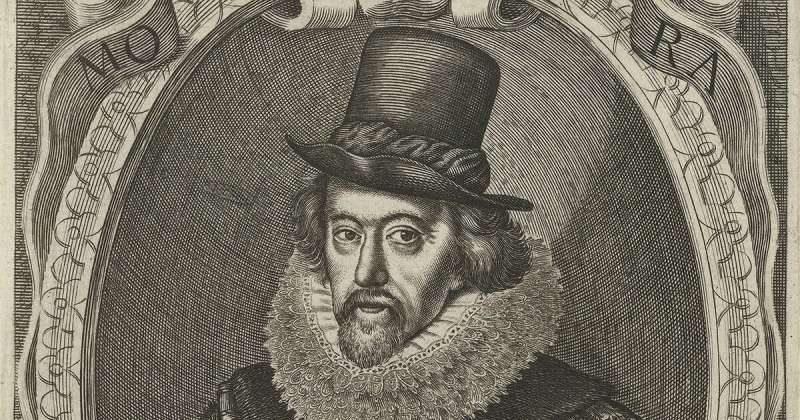Researcher traces concept of taste in literature to 16th century

Turns out we can thank a guy named Bacon for the concept of "taste," as in properly discerning the relative value of cultural goods.
That is what Jonathan Lamb contends in a new article, "What Books Taste Like: Bacon and the Borders of the Book" in the journal Textual Cultures.
The University of Kansas associate professor of English argues that a key shift occurred with Francis Bacon's famous 1597 aphorism about eating books: "Some bookes are to bee tasted, others to bee swallowed, and some few to bee chewed and digested: That is, some bookes are to be read only in partes; others to be read, but cursorily, and some few to be read wholly and with diligence and attention."
That's far earlier than the Oxford English Dictionary's citation for the earliest use of the word "taste" with the meaning of aesthetic discrimination. Indeed, writers for the next century would quote and adapt Bacon's line, Lamb said, a process that would culminate in a shift from "taste" in the sense of "to sample" to "taste" in the sense of discrimination and distinction.
This sort of tracing of trends in published word usage over time was made possible only recently and, in the case of the Early English Books Online database, with access that KU Libraries affords, Lamb said. The new article is based on research Lamb has been doing over the past two years for a book he has tentatively titled "How the World Became a Book in Shakespeare's England."
Lamb said he has been searching Early English Books Online "and finding the language of books anywhere I could. So when Bacon says some books are to be tasted, that's just one of about 5,000 examples I have collected of language like this. It includes things like 'the book of nature." People needed a way to talk about the natural world, and the book gave them a structured metaphor to do it. Another example is the phrase 'to turn over a new leaf." Most people today think it refers to a leaf on a tree, but it was a popular bookish metaphor in the 17th century."
Bacon's remark about tasting books struck a chord with his contemporary readers, Lamb said.
"What makes Bacon's version special," Lamb wrote, "is, first, that he crosses the idea of tasting as sample with the idea of eating as comprehension and, second, that dozens of writers repeated his line and used it as a prompt ... By rerouting the notion of taste from a quality of books to a faculty of readers ... Bacon opens the door for the modern notion of taste as aesthetic discrimination—what you mean when you say you have good 'taste' in music."
Lamb wrote that this led, nearly 75 years later, to the work of John Milton, cited by the Oxford English Dictionary as the first usage of this latter concept of taste.
Lamb wrote: "The OED calls this kind of taste 'a sense of what is appropriate, harmonious, or beautiful," specifically 'the faculty of perceiving and enjoying what is excellent in art, literature, and the like." The OED dates this notion of taste to 1671, in Milton's "Paradise Regained," which refers to "Sion's songs, to all true tasts excelling, Where God is prais'd aright.'"
Lamb said that Bacon deserves as least inspirational credit for the modern meaning of taste as refined sensibility.
More information: Jonathan P. Lamb (97–105), What Books Taste Like, Textual Cultures (2021). DOI: 10.14434/tc.v14i1.32841
Provided by University of Kansas
Bacon as Shakespeare — Shakespearean Authorship Trust
Baconian Evidence for Shakespeare Authorship (sirbacon.org)
Who Wrote Shakespeare? The Alternative Authorship Candidates (nosweatshakespeare.com)
“Truth to tell, for three hundred years the world of Poesy and Dramatic Art has been obsessed by an UNCOUTH HALLUCINATION.
“Will not the spell be one day raised, or are we to see Titania, year after year, continuing to fondle so gross an ass, and crowning her vulgar joy with flowers and garlands?”
“Perhaps one ‘farre offe golden morning’ Titania will awake from her dreaming, and realise THAT FOR UPWARDS OF THREE CENTURIES SHE HAS DOATED ON A CLOWN.” Harold Bayley.
On Thursday afternoon, April 28th, 1910,
an Address entitled Francis Bacon wrote “Shakespeare”
was delivered by Mr. H. CROUCH BATCHELOR,
at 10, Wetherby Terrace, S. W., at a Sessional Meeting of THE LADIES’ GUILD OF FRANCIS ST. ALBAN. Mr. WILLIAM WRIGHT SPONG in the Chair.
No comments:
Post a Comment